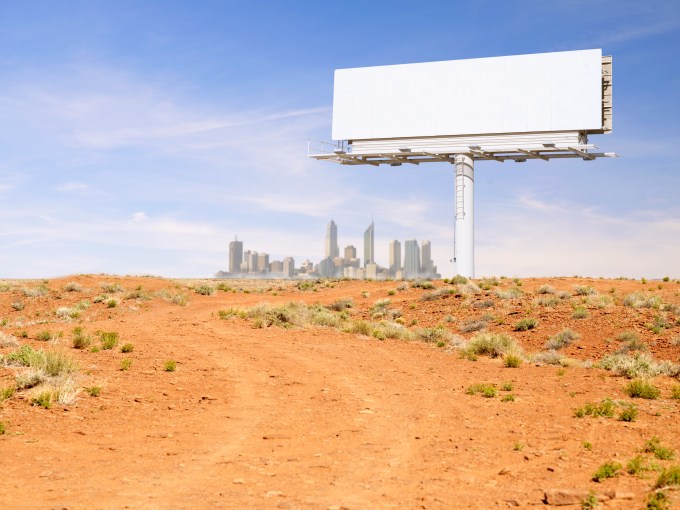I wrote a call to action for the tech community to dive deeper into the future of innovation this coming decade. Where are some of the hot spots going to come from though? Below, I have assembled a very loose set of five clusters broadly categorized into “wellness,” “climate,” “data society,” “creativity,” and “fundamentals” that offer some scaffolding for understanding what’s about to come this decade and how and any entrepreneur — really, any citizen — can start to build progress.
Take these ideas as inspirational — they aren’t limits, nor should the borders of these categories be seen as anything but liminal. I know in the daily cavalcade of news, it can be hard to feel inspired by the future. But do be! There is so much more coming this decade, that we may look back at the 2010s as the dark ages of innovation.
“Wellness”

First, there is a cluster around “wellness.” That sometimes gets elided to just “mental health” and reduced to a prescription bottle, but this area really encompasses so much more than that. How do we build humanistic societies with strong social fabrics that enliven, enrich, and build meaning for our lives?
Yes, we’ve seen strong demand for wellness apps like Calm and Headspace. Exercise hardware like Peloton, Mirror and others along with platforms particularly around group classes have been a huge mainstay during this pandemic era. Mental health treatment itself is getting a makeover as startups reinvigorate the in-person therapist and psychiatrist visit as well as think about new models of delivering mental health services virtually. Even LSD is starting to make headways as a potentially useful tool, and psychedelics are going to be an interesting area to watch in the coming years.
All those areas still are ripe for innovation, yet, how do we go deeper and start to address the root causes of anguish and despair?
Take work, for instance. How do we make workers feel more secure and meaningful in a remote world where gig work makes up an increasing fraction of all employment? The precariousness of labor has a direct effect on wellness, and it’s going to take a much greater leap than a reclassification battle like in California this election cycle to make work “work” for all people. What can we do around stability of pay whether from employment or maybe programs like universal basic income to give people a sense of ownership over their destinies?
How do we start to create the bonds of neighborhoods and communities that hold people together and offer solace in times of despair? Part of this is improving the average town and making it more human-centric (that’s like 20 startups right there), but it also includes constructing more vibrant and expressive virtual worlds where we can find online neighborhoods that are safer than the dumpster fires we find on the web today.
Then there’s the health system in general. While America deservedly receives huge criticism for its overpriced and under-insured system, health systems worldwide face incredible pressures to improve efficiency. How do we make care better, more personalized, and more open? How do we reduce costs while ensuring that care is accurate and delivered expeditiously? There is huge work to be done to make health a key component.
To increase wellness for individuals, we need to increase wellness for our societies, building systems that are designed for the humans that inhabit them. Flexibility with security, engagement with individuality, expression with support. Our existing systems are already antiquated — and we haven’t come up with anything better.
This cluster is about asking “How does the world make us feel?”
“Climate”

The second cluster has to do broadly with the Earth, climate, crisis, and resilience. Climate change is real and not going away, and quite literally billions of people are going to feel its effects in the coming decades. Rising tides, massive hurricanes, power outages, wildfires, droughts and more are going to become part of our daily news vernacular.
Resiliency is not something that any one technology can offer, but innovation has huge potential to allow more of our systems to adapt to the changing nature of our world today.
First, we’ve seen massive changes to energy production that portend large shifts in how we generate power and transmit it to end users. Solar is cheaper than ever, and battery technologies are starting to become much more viable at grid-scale. There’s a huge amount of work to be done here of course around decentralized power generation, base power capacity, resilience, and ultimately, cost. Expect even more excitement here this decade.
We need to transform our infrastructure and built environment. That means everything from the materials we use (cement, for instance, is among the most environmentally destructive materials out there), to the ways we architect buildings, to the crews and technologies we use to build those buildings, to maintaining them after construction. On infrastructure, we need to dramatically lower costs, increase value, and build resilience into transportation, water, and other key utilities. We’ve got ambitious plans around tunnels, fast planes, space rockets, and more. There’s a lot more to explore here.
The West’s poor pandemic response demonstrates the need for new rapid-response organizational models. How do we respond better to rapidly shifting, catastrophic events? How can we rapidly evacuate 100,000 people from a city under threat from wildfires? Are there new UAVs, airframes or other technologies that can be rapidly mobilized to fix these problems? How can we build labor markets and networks that can rapidly deploy needed expertise in near real-time?
Then there is food ecology and agriculture. Food has a huge impact on climate, and is also one of the areas that appears hugely ripe (sorry!) for innovation. Whether it is pioneering meatless products, or more efficient watering methods, or improved crop yields, or diversifying the genetic basis of seeds and fruits, or creating new ways to build farms without causing desertification — there is an almost endless supply of good ideas happening here.
In short, this cluster is about “How can we make the world itself feel better?” It’s an ecological and systemic approach to our world that is — at least today — our only home.
“Data Society”

Remember when data was the new oil? Well, we now have so much data that it is all effectively worthless (supply and demand always seem to show up, don’t they?) While enterprise data infrastructure has improved at least the management of these databases, it’s still amazing how little data enriches our decisions, offers new avenues for analysis, and quite frankly, just makes our lives better on a day-to-day basis.
As I discussed yesterday about the “No-Code Generation,” the first step here is to rethink what education means for all of us going forward, from kindergartens through universities and into continuing education. Facility with computers, critical thinking in terms of data, complexity, and systems, and competence in statistics are now the basic building blocks in most fields outside the arts (and even there, that’s increasingly changing). How can we use data to inform learning, and use learning to increase our competence with data? How can we help everyone become media and data literate, understanding what is real and what is not, while also empowering each of us to do our own analysis?
Data may be ubiquitous, but it’s amazing how much work it can still be to calculate an LTV, or the return on an advertising campaign. No-code tools solve some of these problems, but what we need is a whole revolution in our data tools. We need to be able to sketch out lines of inquiry and have our tools augment our thinking from data. What are we missing? What gaps in our thinking should we be filling in? What data am I lacking to make a fully-formed decision? Am I overly biased toward one statistic versus a more holistic depiction of my situation? From personal decisions to business strategy, we need better tools to abstract the complexity of today’s modern society.
We also need better thinking around how to network knowledge. Roam Research and some other tools are starting to get better at helping users think in terms of a knowledge graph, but there is an incredible amount of potential if these ideas can be democratized and packaged into easier-to-use interfaces. How do we handle the increasing depth of most fields of knowledge and allow more people to get to the frontiers as quickly as possible?
Finally, we need to further our understanding of complexity and chaos and build those theories into the fundamental structures of our society. How do we make governance more adaptable and resilience, so that when massive crises like COVID-19 happen, we don’t see a complete breakdown in our society? Can we create more flexible systems around ownership and property that can create more diverse housing, or material ownership, or intellectual property? Empowering technology (“blockchain!” but could be all kinds of things) coupled with legal changes could dramatically evolve these core elements of our society.
Even today, we are still locked into a mental model built around paper, titles, and maybe if you are lucky, an Excel spreadsheet. There is so much work to be done to empower each of us through data this decade.
In short, the question being answered here is “How do we know what we know?”
“Creativity”

Creativity has never been more important, nor frankly less valued. Outside of the stratospheric stars in the creative arts, everyone else makes less money from music, books, movies, illustrations — you name it — than ever before. We’ve democratized the arts, and in the process, have stagnated them and also made them impervious to new entrants looking to make a career in these crafts.
How do we cultivate each person as a unique individual at a time when an increasingly globalized consumer culture ensures that all of us have identical phones and apps in our pockets? How do we protect unique and differentiated concepts from being subsumed from the most popular ideas that rage like wildfire across our feeds?
Creativity directly relates to wellness, since it gets at the meaning of why we are all on this planet to begin with. As more and more of our creative experiences are intermediated by algorithms, creativity directly interacts with data in ways that have huge effects on our artistic energies and sense of progress.
There is so much to be done here, and the 2020s are going to be a wellspring of new ideas. First and foremost, how do we begin to improve recommendation systems to move beyond driving you down narrowing rabbit holes, and instead expanding you into adjacent and whole new fields of ideas? How can, say, YouTube begin to understand you as a holistic person with diverse interests and tastes, and actively surprise you with novel ideas that build on concepts you might have seen before. Algorithms for better or worse aren’t going to go away, but they can be massively improved to enrich our lives further.
How do we empower more creative arts and ensure that artists (very broadly conceived) have the income, time, and support they need to contribute original art to our global discourse? Making great work takes time — an extremely precious commodity these days where audience attention is the only metric that matters in many fields. How can we build the financial infrastructure to allow more people to take risks around art? How can we give more people seven years to write their magnum opus, or to sculpt those shapes that have been lingering in their heads their whole lives? We all appreciate this art when we see it, but how do we ensure its creation stays viable?
Another angle on this is that apprenticeships have broken down in many fields as professionalization has kicked in. Artists of yore who might have started in a studio working with an expert are now taught by faculty in professional degree programs. How do we rethink the transfer of tacit knowledge from one generation to the next? How do we even capture that tacit knowledge in a format that allows it to be shared? You can’t learn painting from reading Wikipedia, but that doesn’t mean that there aren’t new ways to transmit this knowledge.
Along this line, what kind of authoring tools can we build this decade that help more people down the path to creativity? We have seen an incredible number of tools come out, from podcast and audio production, to film, and even story editing, that have helped make these fields more accessible. What’s next? Are there ways of helping people develop their own artistic habits and push them to greatness?
Finally, there is the question of breaking up some of the largest and most homogenous digital systems in creativity. Should we use antitrust laws to break up some of the cultural monopolies that hold our society captive? If we had dozens of video sites, or dozens of online bookstores, or dozens of music streaming services, could we empower more innovation, diversity, and cultures of expression? What are we leaving behind with singular scaled solutions?
Culture is so important to how we connect with the world. Building on the basic tools founded in the last decade can help all of us make tremendous strides in how we connect to the world.
In short, this cluster asks “How do we make?”
“Fundamentals”

We’re now at the final cluster, and it’s arguably the most important.
The technologies that drive our modern world — the internet, GPS for location, and more — were developed in the post-war era from the 1950s to the 1970s. There are endless statistics about how fundamental research has flagged in recent decades, leading to a huge debate on whether we are reaching the so-called end of growth.
I don’t believe we are done growing, but I also don’t believe we have been investing in fundamental science the way we need to if we want another generation of technologies to commercialize and mature.
Perhaps similar to creativity, science has become “productive.” Too many useless papers are submitted, too much administrative overhead constrains our top scientists from doing their best work, and far too much time is wasted on duplicate experiments or research that would be better spent on novel problems or lines of attack.
We need a massive infusion of new ideas around how to build the best engine for fundamental research and discovery.
This comes from a number of different vectors. We need better tools to handle “Big Science” projects — the linear accelerators, fusion reactors, and other massive, multi-billion dollar projects that increasingly dot the frontiers of science. Can we build more of these projects? Are there ways of building more of them faster and cheaper? Can we further collaborate across regions and nations to share the burden of these projects?
We also need to empower the individual scientist to explore the world on our behalf. “Science” is not something that needs to be conducted solely within the rarefied world of ivy-covered university walls. Citizen scientists may have been waylaid in the past few decades, but many of the most important advances in history have come from individuals working in solitude. What can we build to help empower more people to make their own discoveries?
I talked about “The Dual PhD problem” a few weeks ago, but how do we connect more disparate fields of knowledge together to find new syntheses that might improve our understanding? More and more innovation is happening in the interstices between domains — how can we help more people find those opportunities and get there quickly?
Finally, can we innovate on how we fund science to open it up to more people, institutions, countries, and societies? Today, most fundamental research is sponsored by government institutions, but that can’t be the only mechanism to underwrite these positive externalities. What’s the right level of funding, can we allocate it better, and can more people add their own commitments to the process?
In short, this final cluster gets at “How do we discover?”
Collectively, these five domains — wellness, climate, data society, creativity, and fundamentals — are big, amorphous, vague yet rich with opportunity and potential. Some ideas are going to be easily monetizable. Some are not going to be capitalized at all. Some of these areas need laws and culture change, others need new software. But all of them ask not just what to build, but why our society needs it built, and that might just be the most important question required for the 2020s.































Comment